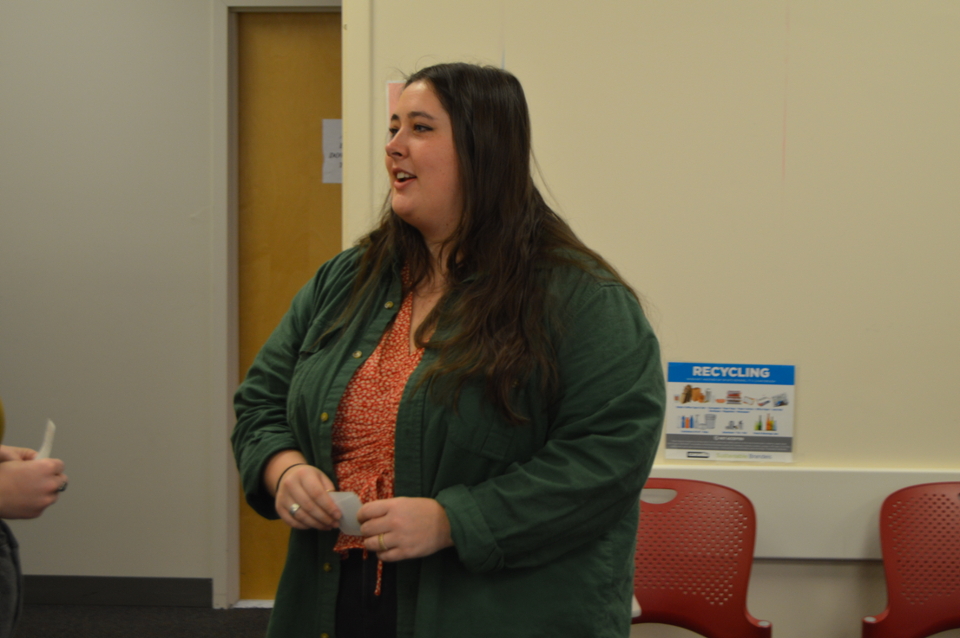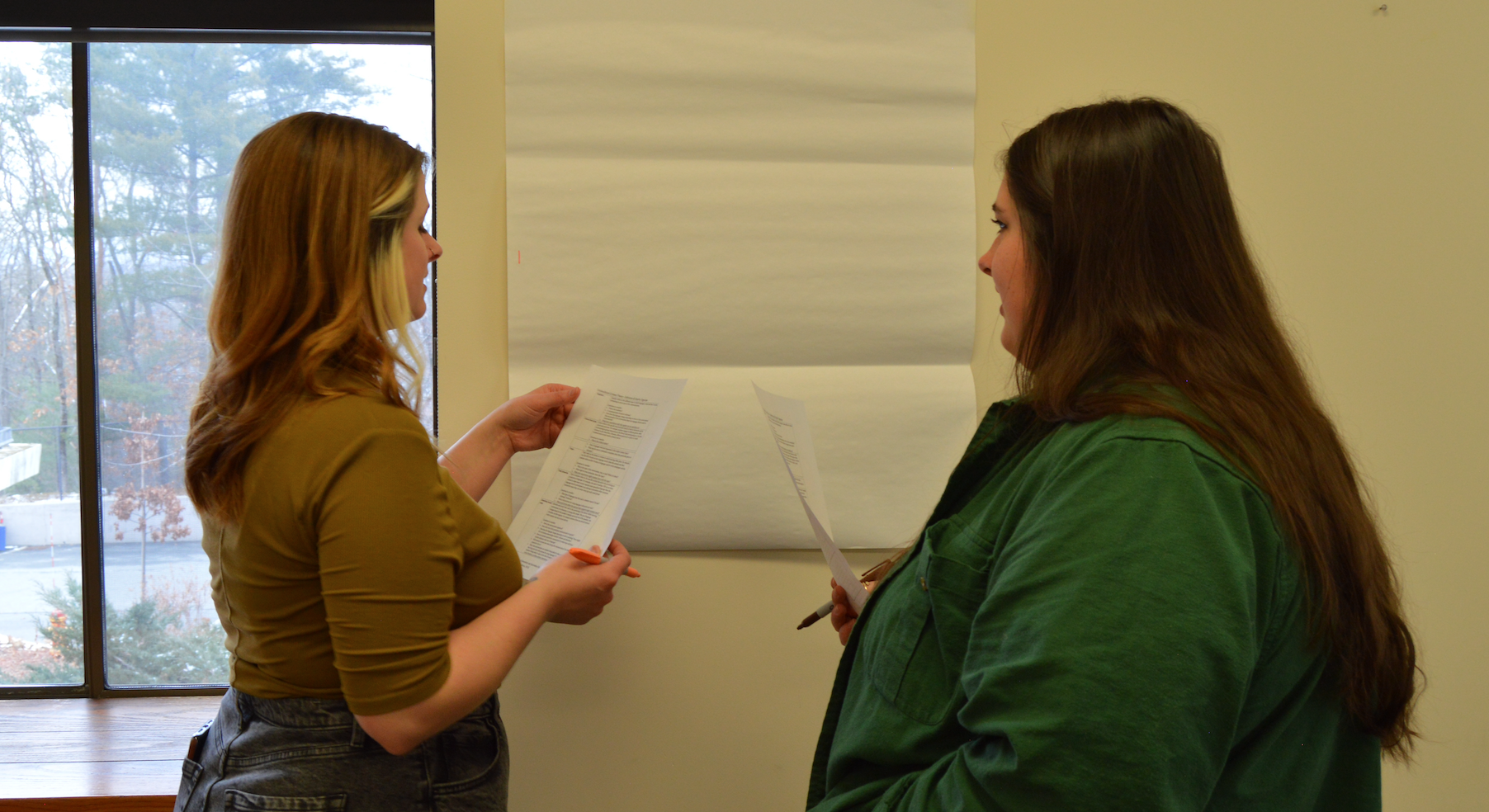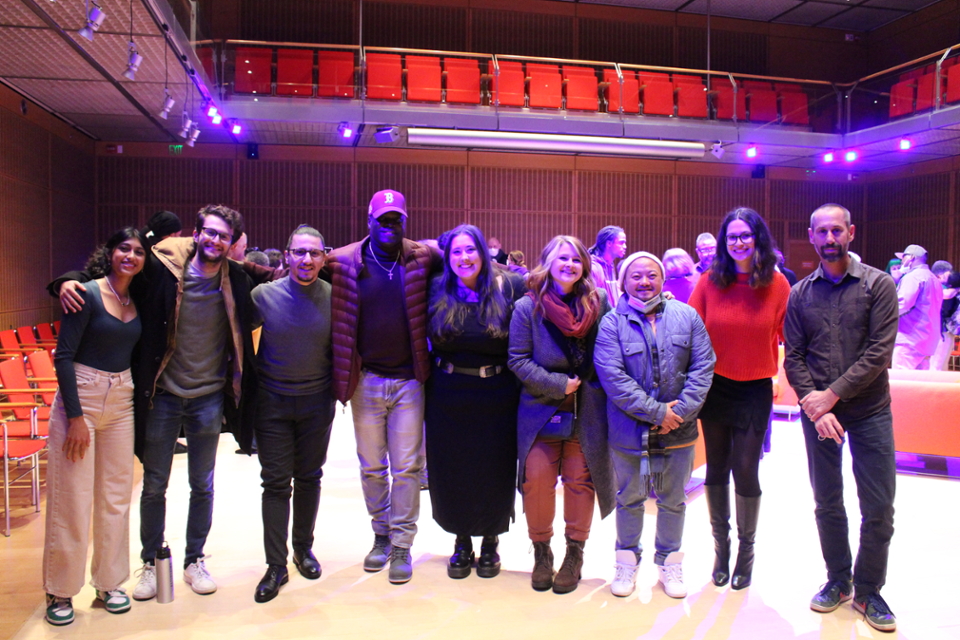Building and Fostering Communities with PEP's Liz Peterson

Liz Peterson at the PEP Spring 2023 Training Session.
Photo Credit: Jana Antic
Liz Peterson, a returning Partakers Empowerment Program facilitator, reflects on her experiences with PEP, how she approaches a new cohort, and what sets PEP apart from her previous work.
By Jana Antic
At the beginning of the fall semester, Liz Peterson, a new graduate student at the Heller School for Social Policy and Management, found herself far from home and eager to build community for herself and others. Before coming to Brandeis, Liz dedicated herself to refugee resettlement, building her passion for giving back to the community. Motivated by this work, Liz took special note of a listing during her search for on-campus employment: Partakers Empowerment Program (PEP) Facilitator. “I had always learned about the carceral system, especially in political science classes in undergrad, but I had never worked toward helping the community that had been impacted by the carceral system,” she remarked on her interest in the position. “I especially never really learned about life after prison, so I thought that was a very interesting niche to go into. It was really about giving back to the community and learning.”

Her work with refugee resettlement gave her a unique perspective that assisted her with facilitating PEP’s weekly workshops. Despite their differences, Liz noticed that refugees trying to adapt to their new homes shared significant similarities with people returning from incarceration: “They’re both looking for community, jobs, and housing; they’re all starting with the same blank slate.” However, Liz realized an important distinction: “[PEP is] moving forward with your life but also holding space to reckon with the past and what you’ve been through.” Her refugee resettlement work mostly concentrated on explaining concrete tasks like finding jobs or writing a resume—which are all skills PEP covers as well—but, as Liz describes, “it’s also a space and community that is being built to work through and talk about shared experiences.”
As in her previous work, Liz teaches important practical skills in PEP, however, part of the goal is for students to lean on each other for support and resources. It’s these moments that stand out to Liz: “My favorite part is whenever we can get a conversation going and the facilitators can kind of take a step back. It’s really nice to know that you’ve built this space where people with shared history but very different backgrounds can swap knowledge or issues and look for resources in their community to tell other people about them.” These moments embody the program’s main goal of providing its participants with a community that they can turn to even after their graduation.

When working with formerly incarcerated people, Liz recognizes that sometimes it can be difficult to offer support or give advice when facilitators and students seem like they can come from such different backgrounds. It’s a sentiment echoed by many of the facilitators. Liz quickly learned that the similarities she shares with PEP students help her bridge that gap. “While in tech, you might have to explain what right-clicking means or a browser or what a file is or how to send an email—basic things that you’ve kind of known since you were a kid—you’re also, at least I am, in the same boat with a lot of them, struggling with where to go from here with education, job plans, figuring out how to network and talk to people,” she remarked. However, even the differences between them are important:. “That’s the whole point of a community: it’s to have diverse ideas and diverse backgrounds and knowledge coming from all different realms,” Liz believes, “All you need is one thing to tie you together. And here, it’s coming out of incarceration. Even us, we’re loosely tied to that topic, but that’s all you need to work together and learn new things and build relationships.”
Liz is now facilitating her second cohort with the Partakers Empowerment Program. With every cohort comes new challenges; each cohort and student differs in their needs, knowledge, and comfort with speaking. Some of these challenges can halt the original lesson plans, but these moments have taught Liz a significant lesson during this cohort: “It’s no big deal if we’re not talking about the topic. I’m building a relationship with this person that I might not have had before in these silences of waiting for things to load.” These moments that may seem like a failure can actually bring the most valuable interactions.
As she continues learning from the program and its participants, Liz believes that everyone should do more to learn about the carceral system and its harmful effects. “Even if you’re not involved in PEP, try to look into issues surrounding the carceral system. You don’t have to become a full-time facilitator of PEP to be involved.”
For those who do want to get involved whether through PEP or other BEJI activities, you can look out for future student position listings like Liz. You can also join our student group, the Carceral Awareness, Reform, and Education Club (@BrandeisCAREClub), that hosts campus events, brings incarcerated voices to campus, and facilitates conversations around carceral literacy and political advocacy.